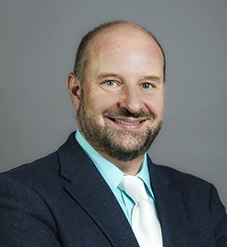Dr. Adriano Aguzzi, MD, PhD, is heading up the formation of Mercaptor’s Scientific Advisory Board (SAB). Dr. Aguzzi is a world-renowned neuropathologist, whose research has garnered numerous accolades including the Marcel-Benoist Prize, the Robert-Koch Prize, the Antonio-Feltrinelli Award and the Sheikh Hamdan Bin Rashid Al Maktoum Award for Medical Sciences, which are among the highest recognitions in Switzerland, Germany, Italy, and United Arab Emirates respectively. He is also Professor and Chairman of the Department of Pathology at University of Zurich, Director of the Institute of Neuropathology at the University Hospital of Zurich and a Founder and Director of the Swiss National Center for Prion Diseases.
Dr. Aguzzi invented the first in vivo model of microglia depletion (Nature Medicine, 2005), which helped establishing that microglia possess a vigorous antiprion activity (Nature Neuroscience, 2008, Journal of Experimental Medicine, 2016). In a series of groundbreaking papers between 1997 and 2005, Aguzzi identified the cell types and molecules that enable invasion of the brain by prions (Nature, 1997, Nature Medicine, 2001; Neuron, 2001, Nature, 1997, Nature Medicine, 1998; Science, 2000 Nature, 2003, Nature Medicine, 2001). The discovery that follicular dendritic cells are the “prion factories” in extracerebral tissue led him to identify their function as providers of the “eat-me” factor Mfge8 (Journal of Experimental Medicine, 2008). He found that FDCs are derived from ubiquitous perivascular cells (Cell, 2012).
Dr. Aguzzi identified plasminogen as a prion carrier in blood (Nature, 2000, Lancet 2001). Also, Aguzzi improved the process for the differentiation of prion strains by fluorescence spectros- copy with polythiophenes (Nature methods, 2007). The affinity of polythiophenes for prions was the basis for preclinical therapeutic efforts, which proved that structural design can help finding anti-aggregation compounds (Science Translational Medicine, 2015). The Aguzzi lab found that PrP made by neurons prevents Schwann cells from developing chronic demyelination (Nature Neuroscience, 2010) by activating the G protein-coupled receptor Gpr126 (Nature, 2016). In addition to clarifying a question that had remained open for 30 years (“What is the normal function of PrPC?”), this finding could be important for the therapies of chronic neuropathies, common debilitating diseased with limited treatment options.
Impact of research: Aguzzi published >400 scientific articles, >30 of which appeared in Nature/Science/Cell. These papers were referenced >47,000 times. Aguzzi’s “h-index” (Google Scholar) is 114. Labor-Journal reported twice that Aguzzi was the most cited neuropathologist and third-most cited neuroscientist in German speaking countries.

